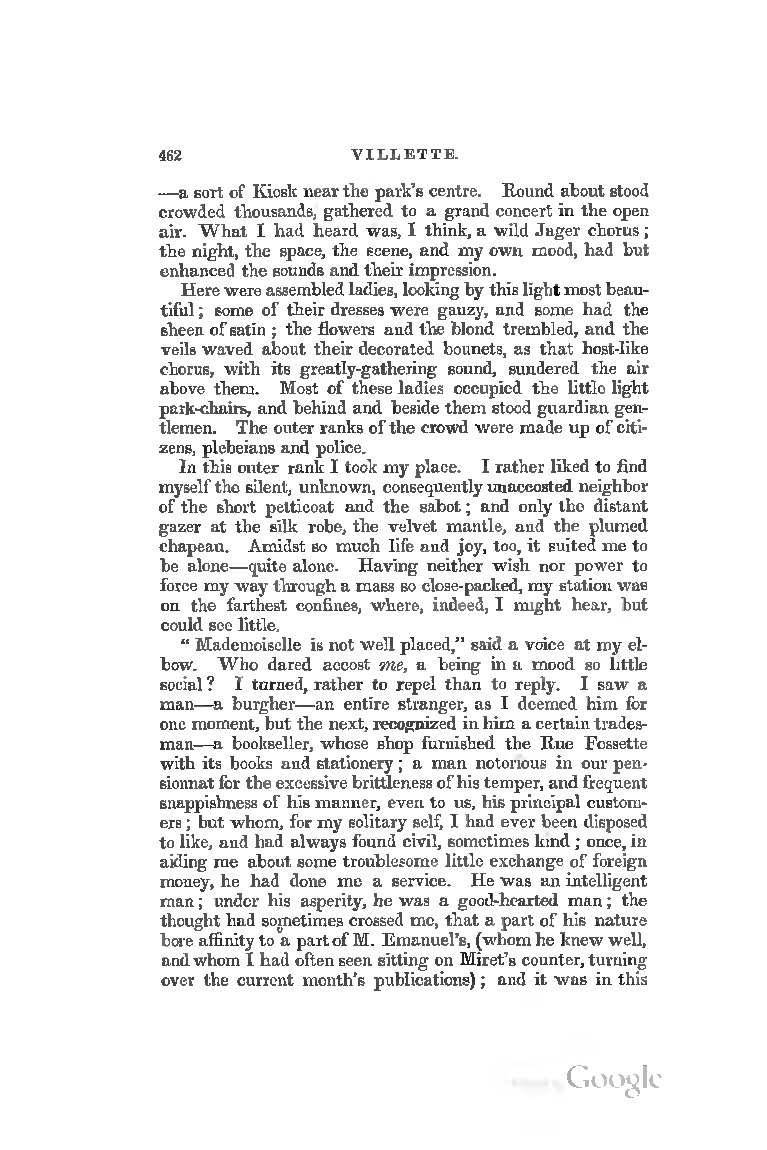—a sort of kiosk near the park's centre. Round about stood crowded thousands, gathered to a grand concert in the open air. What I had heard was, I think, a wild Jäger chorus; the night, the space, the scene, and my own mood, had but enhanced the sounds and their impression.
Here were assembled ladies, looking by this light most beautiful: some of their dresses were gauzy, and some had the sheen of satin, the flowers and the blond trembled, and the veils waved about their decorated bonnets, as that host-like chorus, with its greatly-gathering sound, sundered the air above them. Most of these ladies occupied the little light park-chairs, and behind and beside them stood guardian gentlemen. The outer ranks of the crowd were made up of citizens, plebeians and police.
In this outer rank I took my place. I rather liked to find myself the silent, unknown, consequently unaccosted neighbour of the short petticoat and the sabot; and only the distant gazer at the silk robe, the velvet mantle, and the plumed chapeau. Amidst so much life and joy, too, it suited me to be alone—quite alone. Having neither wish nor power to force my way through a mass so close-packed, my station was on the farthest confines, where, indeed, I might hear, but could see little.
"Mademoiselle is not well placed," said a voice at my elbow. Who dared accost me, a being in a mood so little social? I turned, rather to repel than to reply. I saw a man—a burgher—an entire stranger, as I deemed him for one moment, but the next, recognised in him a certain tradesman—a bookseller, whose shop furnished the Rue Fossette with its books and stationery; a man notorious in our pensionnat for the excessive brittleness of his temper, and frequent snappishness of his manner, even to us, his principal customers: but whom, for my solitary self, I had ever been disposed to like, and had always found civil, sometimes kind; once, in aiding me about some troublesome little exchange of foreign money, he had done me a service. He was an intelligent man; under his asperity, he was a good-hearted man; the thought had sometimes crossed me, that a part of his nature bore affinity to a part of M. Emanuel's (whom he knew well, and whom I had often seen sitting on Miret's counter, turning over the current month's publications); and it was in this

